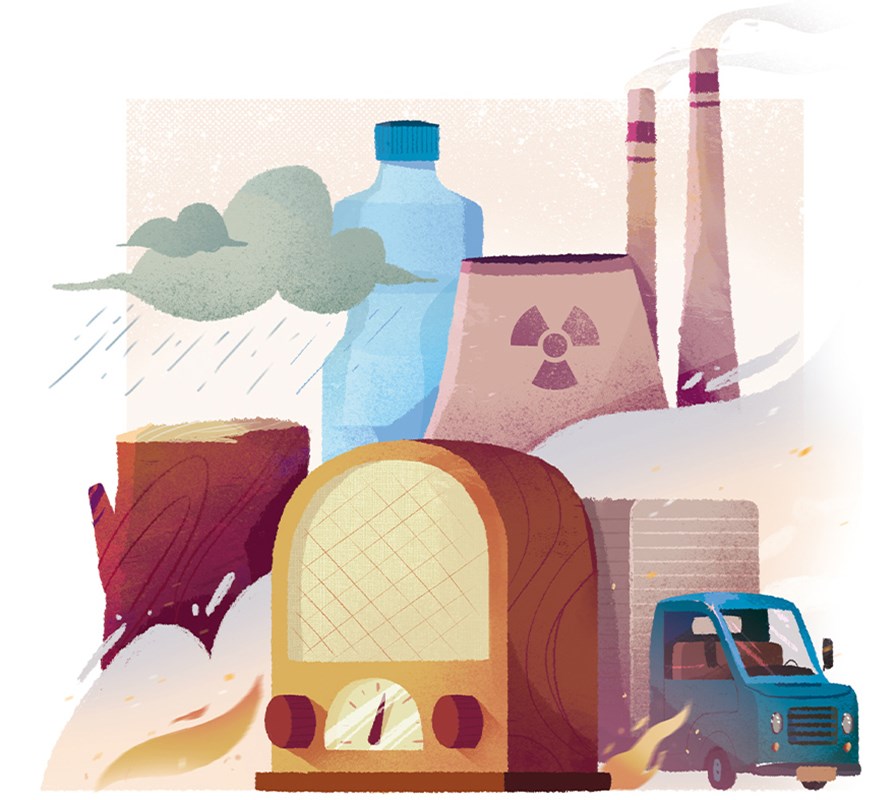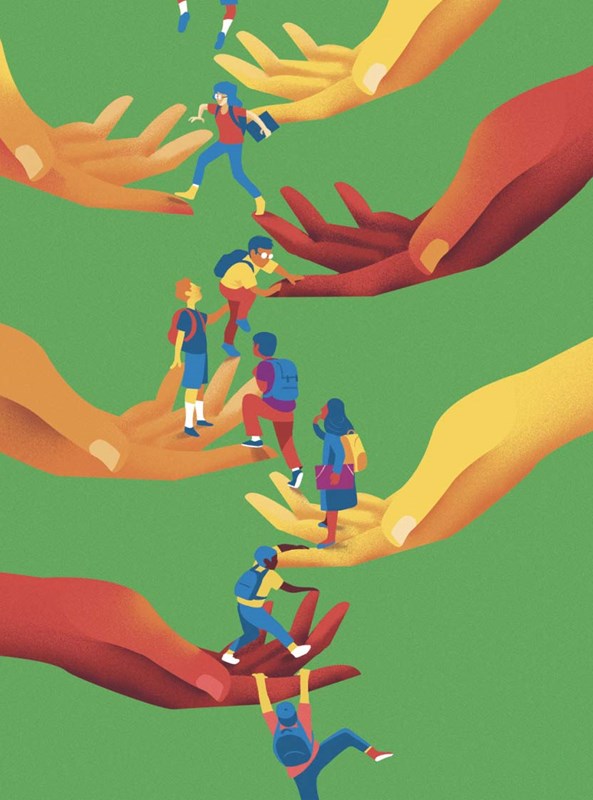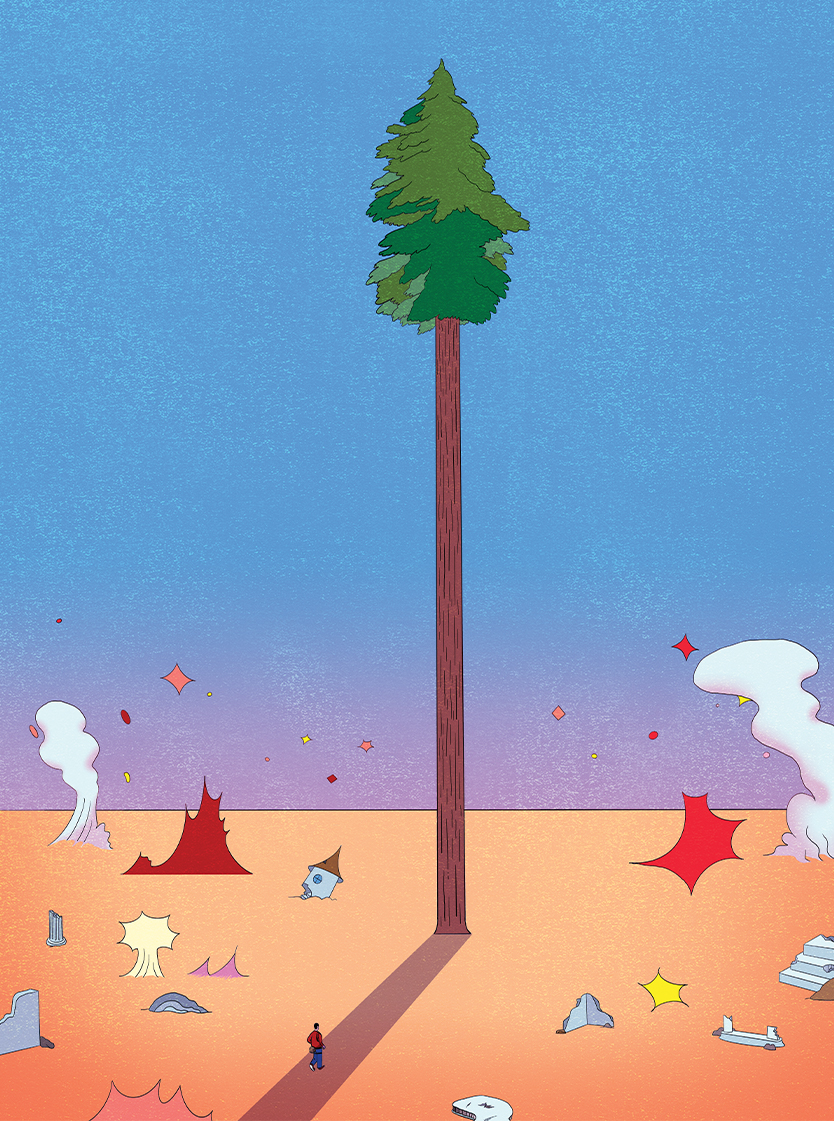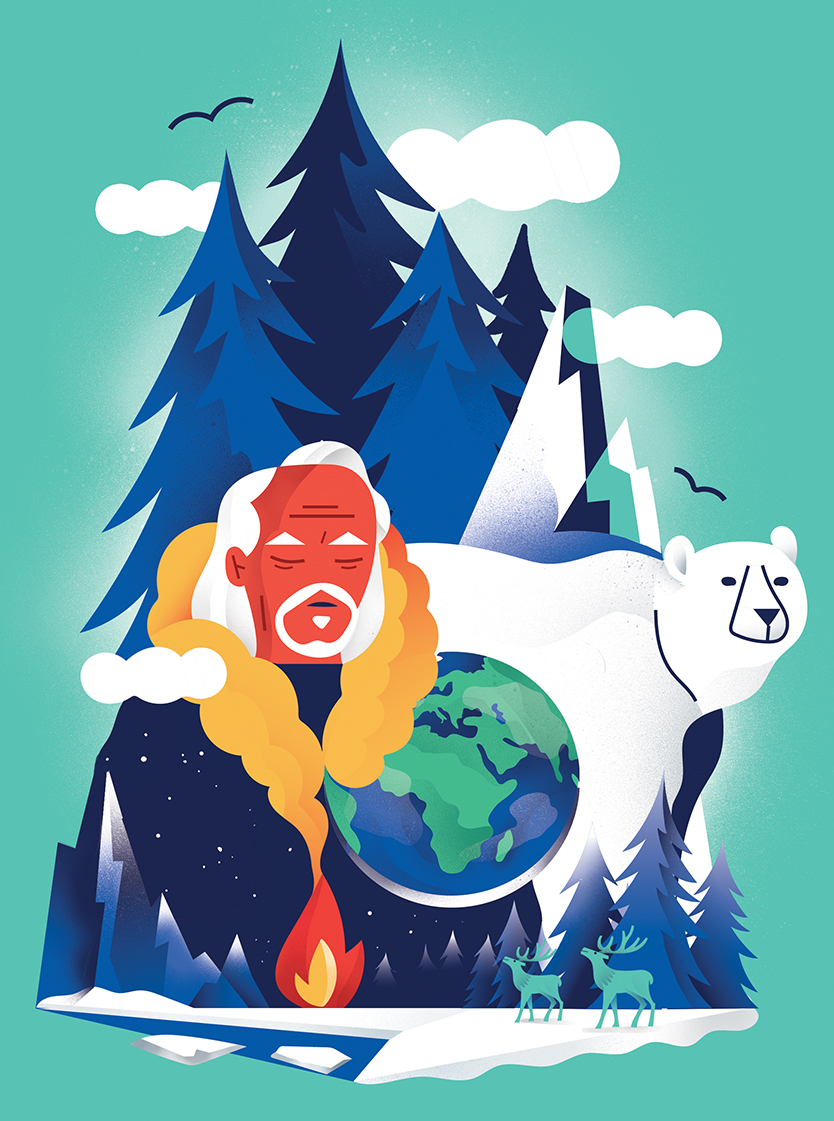time to live in harmony
By Kate Humble

Rodrigo Cordeiro

There is still time for the human race to seize control of its fate. But only if we can change our mindsets, and use our knowledge, intellect, experience and energy to finally live in harmony with the planet and its other inhabitants writes naturalist, author and broadcaster Kate Humble.
It is November. Autumn in the UK. The mornings are dark and when I leave the house just before 7am the sun hasn’t risen above the tree line yet. The sky is streaked with the pinks and oranges that herald its arrival and, in the west, the moon, bright and full, casts its silvery gold light on the wet grass. It’s cold, as it should be, not below freezing, but cold enough for gloves and a thick coat. And as I walk, and the sky lightens, the beauty of the landscape around me reveals itself. The beech and oak trees are still ablaze with colour: golds, reds, coppers and russets. The outline of the mountains are etched in deep purple against the lightening sky. Above me the jet black shadow of a soaring raven. Droplets of dew catch the early sunlight as I kick through the still-green grass. On mornings like this, it is easy to believe that all is right with the world. I can stand, breathe in the cool, clean air, shut my eyes and feel the tentative warmth of the sun, hear only the rooks waking up from their roost and taking off in a dark, croaking crowd.
But all is not right with the world! The news on the radio as I make my morning tea reports the misery of whole villages in the UK that have been submerged by flood water after a month’s worth of rain fell in just 24 hours. There are reports from Venice that the Basilica in St Mark’s Square has been flooded, something that has happened only a handful of times in over a 1,000 years. And yet in California and Australia wildfires rage, and droughts plague Chile and South Africa. Delhi and Beijing battle with dangerous levels of pollution. In the Arctic the permafrost — so called because the earth remains permanently frozen all year round — is defying its name and melting at a faster rate than scientists had previously thought. And once it melts it doesn’t refreeze. Huge swathes of the Earth’s oceans are covered in plastic debris. Rivers like the Ganges, the Danube and the Nile are lethally contaminated. The Dead Sea is shrinking, Alexandria is sinking, and temperatures continue to break records across the Middle East.
Extreme weather events — typhoons, hurricanes, and heatwaves — are on the increase. So are extinctions. In recent times the Earth has seen its greatest loss of biodiversity since the demise of the dinosaurs.
“unlike any other species we have the privilege of being able to decide our fate”
Kate Humble

This precious and, as far as we know, unique planet of ours, is at war, trying to the repel the tactics of an enemy hell bent on destroying it. But the enemy is undeterred by fire, famine and flood. Sure, there will be some suffering, some deprivation, some loss of life, but that’s the case with every war. But what is so curious about this war is that should the enemy of the Earth win, it will lose everything, everything it needs for its survival, everything it holds dear and precious. It will bring about its own extinction. More curious still, is that it knows this will be the outcome: has known for decades. Because the enemy of the Earth is the human race, and humans have brains that understand the concept of past and future, have the ability to record and predict and comprehend cause and effect. Human beings know that their war with the world can only end in the demise of their species. And yet still the war goes on.
But there is dissent in the ranks. Not every human wants to do battle with the Earth. Some want to broker peace, to bring about reconciliation, to work in partnership with our planet and our fellow inhabitants to heal the damage that our species has wreaked. And the dissent is growing, getting noisier, percolating through human society, prodding the consciences of young and old, rich and poor. There is a growing awareness that we are all culpable, that sitting on the sidelines wringing our hands and feeling helpless is not going to bring the war to an end. Nor is putting our faith and our fate in the hands of the people who lead us. We all face the same choice, whoever we are, wherever we live, whatever our status.


We can continue as we are, enjoying the short term spoils of our fight with the Earth, continue to pillage, exploit and destroy with a mindless, thoughtless disregard for the future of our own species. Or we can stop. Stop fighting and instead use our knowledge, our intellect, our experience, our energy to live in harmony with our planet and its other inhabitants. And there will doubtless be those among us that say this is unrealistic, impractical, impossible, but it’s not. Because we know what we need to do. We already have that knowledge and, better still, we already have evidence of how generous the Earth is — how much she gives back to us when offered respite.
But it won’t be easy either. It will involve a change in priority and mindset. Many of us will need to live differently, make some sacrifices, consume less, waste less. But the advantage of us making that choice is that we can retain some control over the destiny of our species whilst maintaining a quality of life that may ultimately prove better and more fulfilling than the one we are living now. And if we don’t make that choice? Then the Earth will continue to respond in ways we can’t control, ways that will wreak far more suffering and demand far more sacrifice than we would impose on ourselves. Ever more swiftly she will deny us the resources we need to survive, the very basics: clean air, water, soil, and shelter. The facts are stark. We cannot win our battle with the Earth. We must adapt or die.
But unlike any other species we have the extraordinary privilege of being able to decide our fate. Is it, then, really such a hard choice?








